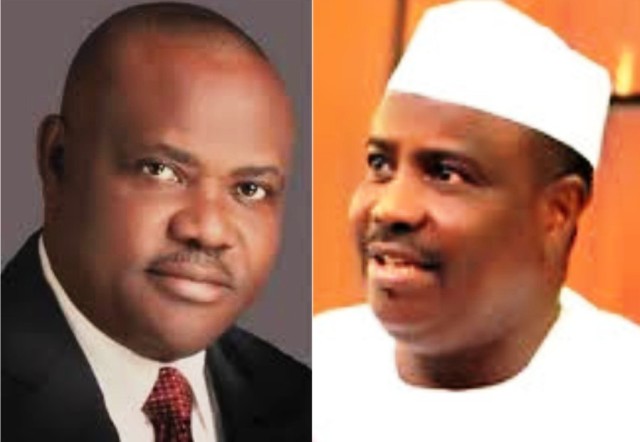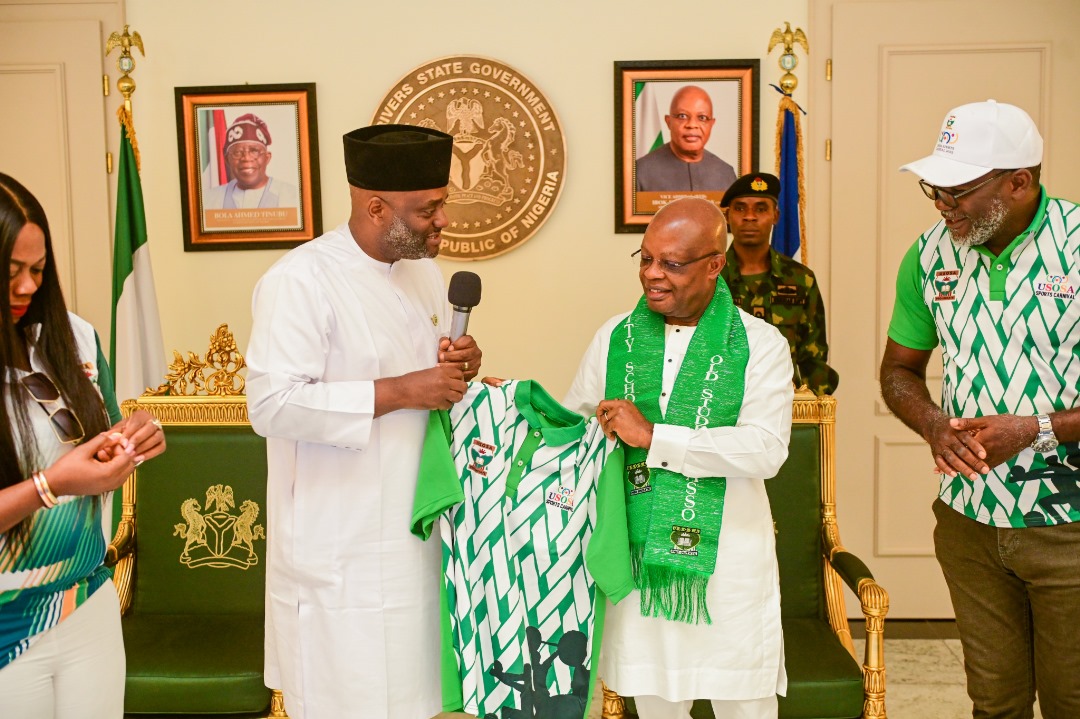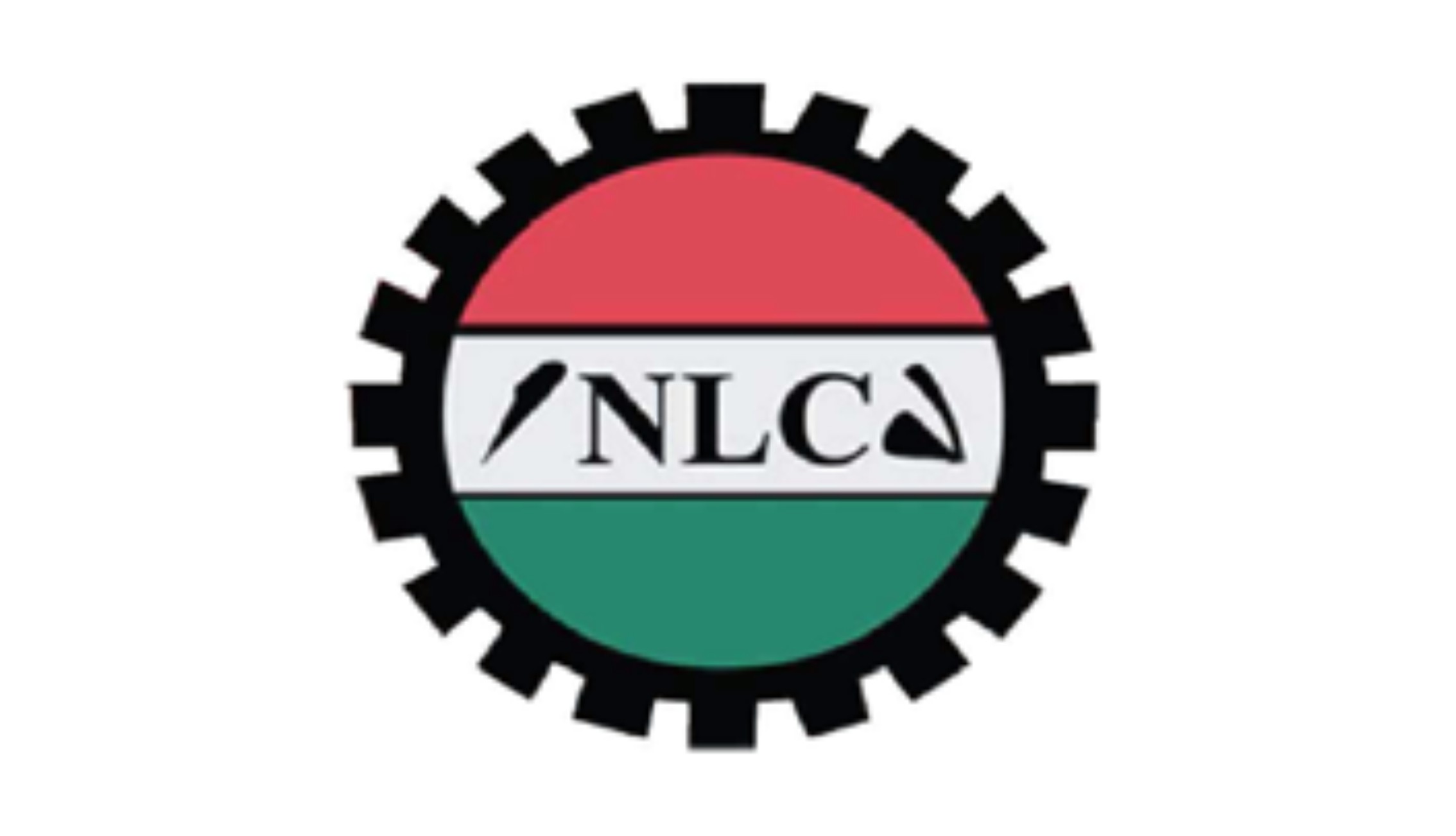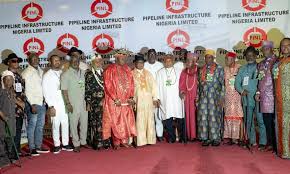Featured
Beyond Partisan Politics …The Tambuwal, Wike Example

For a country deeply enmeshed in bitter partisan bickering, political intolerance and senseless blame-game, the statesmanship displayed by Sokoto State Governor, Aminu Tambuwal and Rivers State Governor, Chief Nyesom Wike deserves some commendation. It indeed demonstrates the needed difference between ‘politicking’ and leadership.
Last weekend, Tambuwal, led by his host, Wike, commissioned various projects completed by Governor Wike in Rivers State after the Nigerian Bar Association (NBA) Conference in Port Harcourt. The host governor is of the Peoples Democratic Party (PDP) and his guest, the All Progressives Congress (APC).
Among projects commissioned by Tambuwal were the Rumualogu-Alakahia road in Obio/Akpor Local Government Area built to ease traffic congestion in that sector of the LGA and the expanded and rehabilitated Okrika ATC Jetty and pavilion reconstructed by the government for safer water transformation in the area.
Commissioning the projects, Tambuwal described Governor Wike as a man of the people committed to the development of the state. “I see that Wike is a man of the people who is committed to the development of the state. I commission this road to the glory of God and the benefit of the people”, Tambuwal said.
Tambuwal spoke from the heart as a good leader should and not a political opponent and demonstrated very clearly, that what follows after every election is leadership and service and not the needless blame-game that has characterised governance at the centre and the bitterness that has coloured the criticisms of the opposition in the state.
Nigeria recorded one of the worst examples of opposition politics months before the 2015 general elections and did not abate even after opposition won the Presidential elections. To date, name-calling takes the place of reasonable leadership.
It was an opposition that saw nothing good in government and politicised even national security. Some examples may suffice.
When it became evident that Nigeria could no longer enrich a cartel of Independent Marketers, who through questionable refined products import claims, made non sense of the petroleum subsidy, and moved to liberalise the downstream sector, opposition kicked, even if they knew it was the right thing to do. They mobilized civil society groups, labour and the jobless lot, provided them with uniforms, foods and flyers in protest against a lofty economic move.
Months later in government, the same APC government did what they should have encouraged the Jonathan government to do when, the Naira had stronger value against other major currencies than later that more than N350 is needed to buy a dollar. Today, the official rate of fuel is N145, up from N87 while, in the open market it sells for between N200 and N300, with consequential hike in prices of basic needs.
This is in spite of the fact that there are no palliatives to cushion the effects of the drastic increase as was being contemplated by the Jonathan Presidency. Attempts to tinker such palliatives this time around were dashed, no thanks to a badly polarised labour which lost its bargaining power to needless power tussle.
In the area of security, opposition view then was that the Jonathan Presidency was too soft on Boko Haram because of the relative inexperience of the Commander-In-Chief. But when the Nigerian troops, under Jonathan’s order took the fight to the terrorists stronghold, the opposition was the first to cry genocide and ethnic cleansing, both concoctions intended to present the Commander-In-Chief as anti-North.
Even so, opposition politicians sponsored a campaign to pressure government to bring back the Chibok School girls abducted by the terrorists. Initially, Nigerians were fooled into believing that the Bringback Our Girls campaigners were apolitical Civil Society activists, genuinely moved by the plight of the girls. It was only after the elections that Nigerians indeed realised that it was a partisan crusade.
But like all monsters, the group has now grown bigger than its owner, and still pursues its agenda of pressuring the APC-government to go bring back the girls. Denied audience with the Presidency, the group staged another protest last week, although the campaigners were later disowned by parents of the abducted girls, who said they were not part of the ill-fated protest to barricade the entrance to Aso Rock Villa.
In those three instances, opposition politicians gave the impression that they had alternative answers to the problems.
First, they would make the nation’s refineries perform optimally and even build new ones. Nearly two years in the tenure, nothing has been done to stop fuel importation. Nigerians are now left on their own and at the mercy of the same importers. What government used to spend to relieve the people of the burden has been removed with no sign that new refineries would emerge to force down prices.
The second is the war on terror. The initial impression was that Buhari had a magic wand with which in three months, we would bring the terrorists to their knees. In fact, December 2015 was peddled as deadline government gave to totally dissimate Boko Haram. Yes, the troops have done well and won territories, hitherto held by the terrorists, but the war is yet to be totally won.
The third is the Chibok girls. The talk then was that a Jonathan Presidency lacked the required military intelligence to locate and bring back the girls. That a Buhari Presidency would within days, locate the girls and save them from the strangle-hold of their abductors. A year and three months after, that has not happened.
The excuses then are today the same. First, government knew where the girls were but was avoiding collateral damage. And later, there is no clear information as to their whereabouts. Just then, Shekau, the Boko Haram henchman released a new video, showing the depleted number of the girls, with an accusation that troops’ bombings were responsible for the deaths of many. The bottomline remains that the girls are yet to be brought back.
If these issues of urgent national concern were not politicised and treated patriotically through bi-partisanship, Nigeria would not be where she is today. For instance, Nigerians would have gotten used to the liberalisation and be relatively stronger to face today’s harsh economy and joblessness. Perhaps also, Boko Haram would have been history and the Chibok girls brought back home.
That is the kind of bi-partisanship that is required in addressing development concerns of the people. That indeed was what Tambuwal and Wike demonstrated when they left their different party garbs behind to celebrate service to the people. That is what electoral victory should be all about. Knowing when to stop political bickering distinguishes a leader from a political jobber.
This is the example opposition politicians in Rivers State should imbibe and not continue to make the state a battle-field, a war front of sorts, where, every political contest must be bloody and inconclusive.
My Agony is that die-hard partisan jobbers would rather than see leadership in Tambuwal’s rare demonstration of statesmanship, misinterpret it, as anti-party and a sign of voting ambition for 2019. That’s how petty some can get, but fact is, both governors deserve commendation for a rare leadership example.
Featured
RSG Commits To Workers’ Welfare …. Calls For Sustained Govt, Labour Partnership

The Administrator of Rivers State, Retired Vice Admiral Ibok-Ete Ekwe Ibas, has assured the commitment of Rivers State government to workers’s welfare and industrial harmony in Rivers State.
The Sole Administrator gave the assurance after meeting with leadership of organized labour unions at the Government House, Port Harcourt on Wednesday.
Ibas reaffirmed government’s policy of prompt payment of salaries and pensions to workers and retirees, stating that all local government employees are not receiving the approved minimum wage.
He disclosed that approval has been given for payment of newly employed staff at Rivers State University Teaching Hospital and the Judiciary, while medical workers in Local Government Areas will now receive correct wages.
Ibas explained that, Government is reviewing implementation challenges of the Contributory Pension Scheme ahead of the July 2025 deadline, adding that Intervention buses have been reintroduced to ease workers’ transportation ,with plans to expand the fleet.
He said specialized leadership training for top civil servants will commence within two weeks, while due consideration is being given to implementing the N32,000 consequential adjustment for pensioners and clearing outstanding gratuities.
Ibas commended Rivers State workers for their dedication to service and called for sustained partnership with labour unions to maintain industrial peace.
“This administration recognizes workers as critical partners in development. We remain committed to addressing your legitimate concerns within available resources,” he stated.
The State NLC Chairman, Comrade Alex Agwanwor, thanked the Administrator for the steps taken so far with regard to workers welfare while appreciating his disposition towards alleviating the transportation problem faced by workers.
He also expressed appreciation for the government’s openness to dialogue and pledged continued cooperation towards achieving mutual goals.
The Rivers State Government assured all workers of its unwavering commitment to their welfare and called for continued dedication to service delivery for the collective progress of our dear State.
Featured
Labour Unions In Rivers Call For Improved Standard Living For Workers

The Nigeria Labour Congress (NLC), Rivers Council, has called for policies that will improve the economic situation of the country in order to ensure enhanced living standard for workers.
The State Chairman, Mr Alex Agwanwor, made the remark on behalf of the unions affiliated to Labour Congress during the 2025 workers day celebration in Port Harcourt, yesterday.
Agwanwor highlighted the demands of the Unions which included the immediate payment of pension arrears, implementation of the N32,000 minimum wage for pensioners, and payment of gratuities and death benefits without further delay.
“We are calling for the regulation and protection of e-hailing drivers, implementation of increments and promotions, and resolution of long-standing issues in the polytechnic sector,” he said.
Agwanwor on behalf of the unions appealed to President Bola Tinubu to reinstate the democratically elected Governor, Deputy Governor, and members of the Rivers State House of Assembly.
He stressed the importance of democratic governance and good working relationship with elected representatives.
According to him, the unions expressed disappointment over the imposition of taxes, increase in electricity tariff, and high cost of goods and services, which have further worsened the plight of workers.
“We urge the federal government to take measures to alleviate the suffering of citizens,” he said.
Featured
Tinubu committed to unlocking Nigeria’s potential – Shettima

Vice-President Kashim Shettima says President Bola Tinubu is committed to unlocking Nigeria’s full potential and position the country as a leading force on the African continent.
Shettima stated this when he hosted a delegation from the Hertie School of Governance, Berlin, led by its Senior Fellow, Dr Rolf Alter, at the Presidential Villa in Abuja last Wednesday.
He said Nigeria was actively seeking expertise from the global best institutions to enhance policy formulation and implementation, particularly in human capital development.
The Vice-President noted that President Tinubu was determined to elevate Nigeria to its rightful position as a leading force in Africa.
“The current crop of leadership in Nigeria under President Bola Ahmed Tinubu is ready and willing to unleash the full potential of the Nigerian nation on the African continent.
” We are laying the groundwork through strategic reforms, and at the heart of it, is human capital development.”
He described the Hertie School as a valuable partner in the journey.
According to him, Hertie School of Governance, Berlin, has track record and institutional knowledge to add value to our policy formulation and delivery, especially in this disruptive age.
Shettima reiterated the government’s priority on upskilling Nigerians, saying ” skills are very important, and with our Human Capital Development (HCD) 2.0 programme.
“We are in a position to unleash the full potential of the Nigerian people by enhancing their capital skills.”
The Vice-President acknowledged the vital support of international development partners in that effort.
” I want to thank the World Bank, the European Union, the Bill and Melinda Gates Foundation, and all our partners in that drive to add value to the Nigerian nation,” he maintained.
The Vice-President said human capital development was both an economic imperative and a social necessity.
Shettima assured the delegation of the government’s readiness to deepen cooperation.
” We need the skills and the capacity from your school. The world is now knowledge-driven.
“I wish to implore you to have a very warm and robust partnership with the government and people of Nigeria.”
Shettima further explained recent economic decisions of the government, including fuel subsidy removal and foreign exchange reforms.
“The removal of fuel subsidy, the unification of the exchange rate regime and the revolution in the energy sector are all painful processes, but at the end of the day, the Nigerian people will laugh last.
“President Tinubu is a very modern leader who is willing to take far-reaching, courageous decisions to reposition the Nigerian economy,” he added.
Earlier, Alter, congratulated the Tinubu administration for the successful launch and implementation of the Human Capital Development (HCD) strategy.
The group leader described the development as ambitious and targeted towards the improvement of the lives of the citizens.
He expressed satisfaction with the outcome of his engagements since arriving in the country.
He applauded the zeal, commitment, energy and goodwill observed among stakeholders in the implementation of Nigeria’s HCD programme.
Alter said the Hertie School of Governance would work closely with authorities in Nigeria across different levels to deliver programmes specifically designed to address the unique needs of the country.
He, however, stressed the need for government officials at different levels to be agile and amenable to the dynamics of the evolving world, particularly as Nigeria attempted to successfully accelerate its human capital development aspirations.
-

 Sports2 days ago
Sports2 days ago“Remo Ladies will win every NWFL Super Six match”
-

 Business2 days ago
Business2 days agoNCDMB, Partners Sweetcrude On Inaugural Nigerian Content Awards
-

 News2 days ago
News2 days agoEleme Indigenes Hail Council Boss Over Evacuation Of Refuse
-

 News2 days ago
News2 days agoOver 80 Army captains to sit for 2025 promotion exam in Benin
-

 Politics2 days ago
Politics2 days agoLP Crisis, Poetic Justice For Betrayal – Ex-presidential Aspirant
-

 Sports2 days ago
Sports2 days agoAfroBasket: D’Tigers To Play Against Tunisia, Cameroon, Madagascar
-

 Oil & Energy2 days ago
Oil & Energy2 days agoStakeholders Laud PINL For Oil Pipeline Safety
-

 News2 days ago
News2 days agoHYPREP Commits To Prioritising Workers’ Welfare, Job Creation

